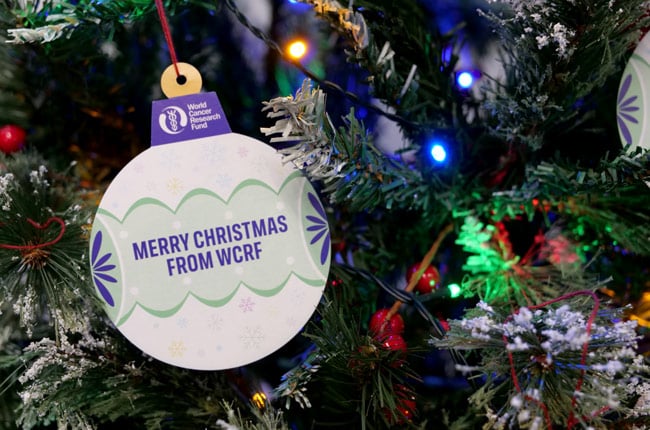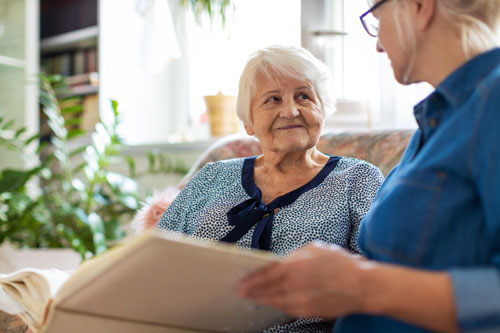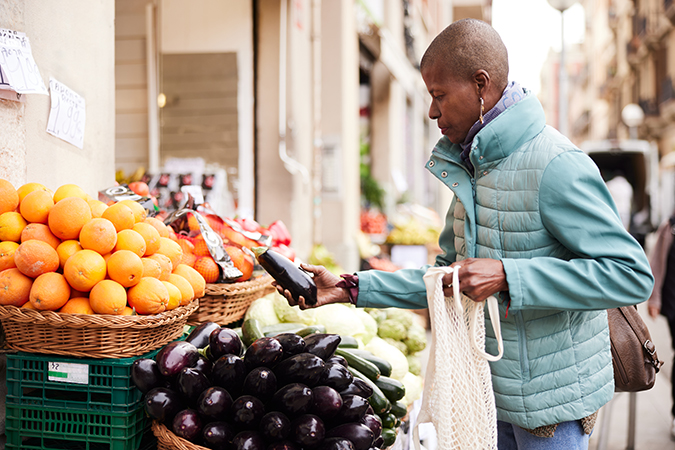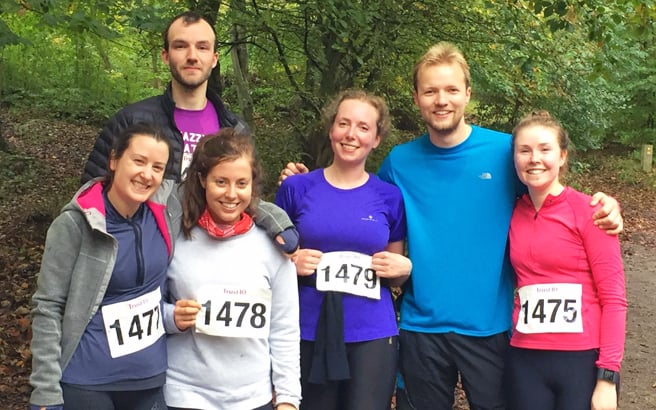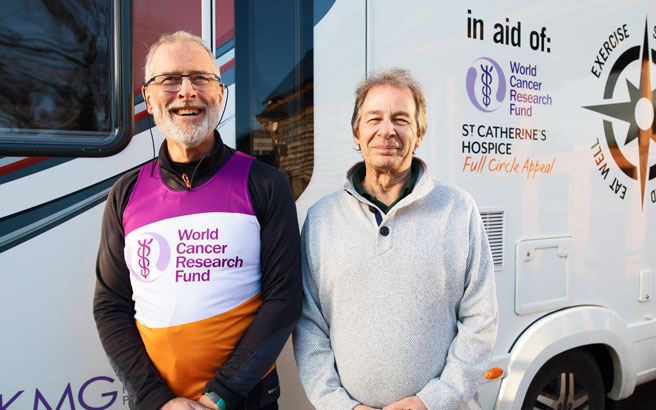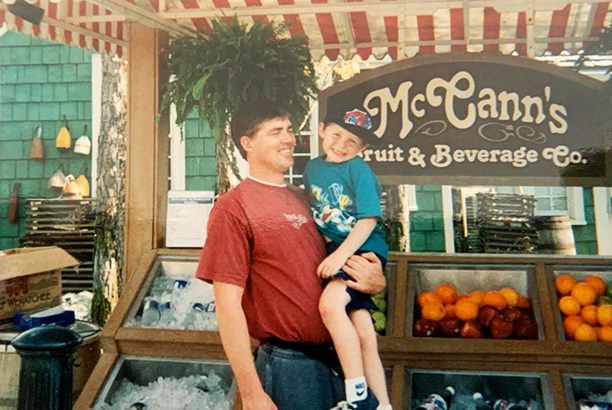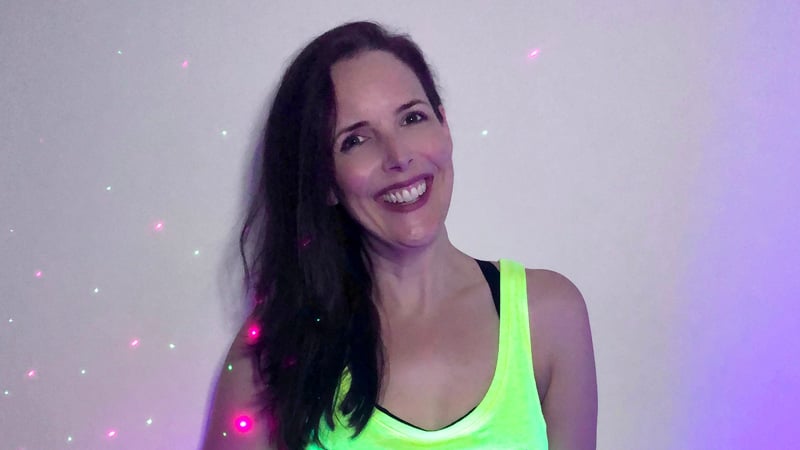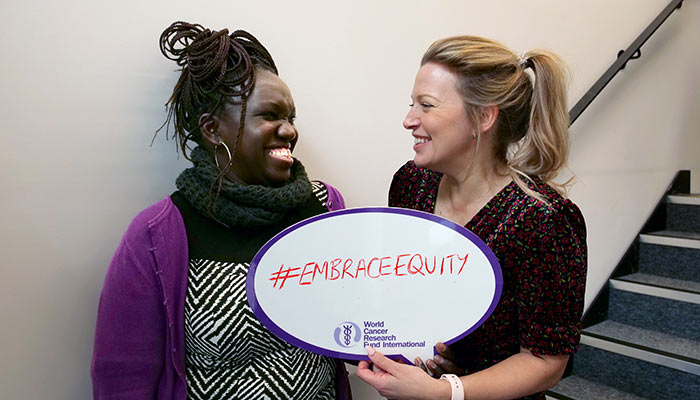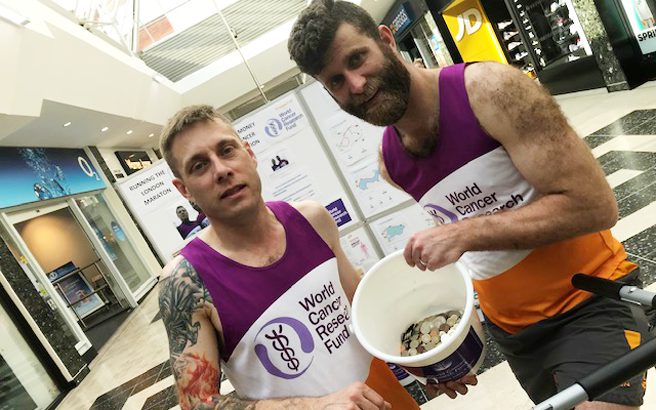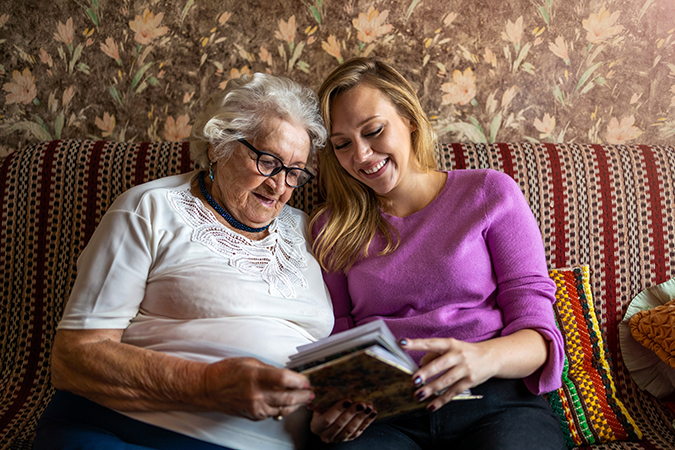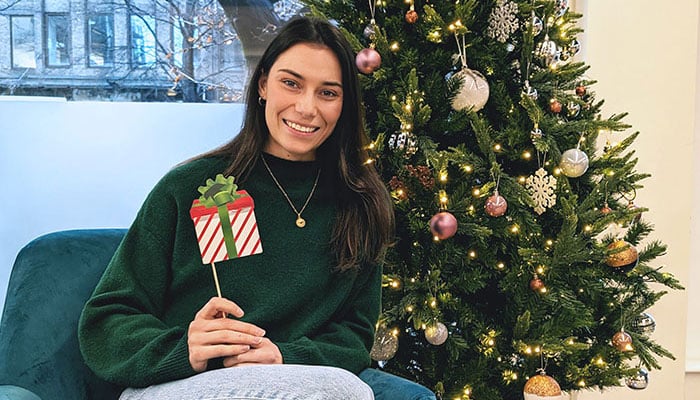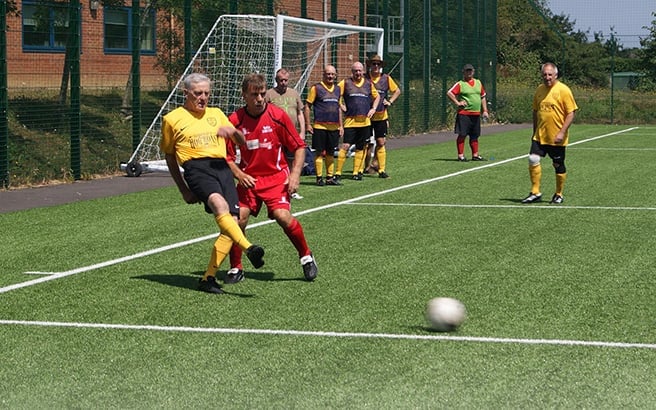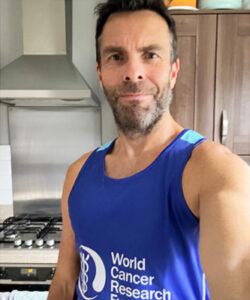 John Steventon is our very own supporter superhero. He completed a HYROX in December dressed as comic book character Wolverine, alongside a friend who dressed as Deadpool – and he isn’t stopping there.
John Steventon is our very own supporter superhero. He completed a HYROX in December dressed as comic book character Wolverine, alongside a friend who dressed as Deadpool – and he isn’t stopping there.
HYROX is an indoor fitness race enhanced by workout stations along the route, so competitors run 1km, then do a workout – 8 times! The workouts include rowing, pulling and pushing a sled, and lunges while carrying a sandbag, making it an exhausting but fun challenge.
John said: “Everything I’ve done in life, I’ve wanted to share with others. As a DJ, I taught aspiring musicians and even wrote DJing for Dummies. In my TV career, I mentor new editors. When I was racing in indoor rowing, I launched the RowAlong YouTube channel to help home rowers stay motivated. So, when I started competing in HYROX, I wondered how I could use this platform to make a difference. “
“I knew I’d never be a podium finisher, but after my skin cancer diagnosis, I found a purpose: racing as Wolverine to raise money for World Cancer Research Fund. The response from the HYROX community has been incredible – not just in donations, but in the conversations I’ve had. Nearly everyone I meet has been touched by cancer in some way, whether personally or through friends and family.”
‘I thought I was invincible’
“Even though the doctor said, “Don’t worry”, when I heard the words “That’s skin cancer” the last hope that I was indestructible fizzled away. I’d always thought I was invincible – after all, I like to dress up as Wolverine – but skin cancer reminded me that none of us are.”
John’s diagnosis helped him become more aware of the importance of cancer prevention. “I remember being 7 years old, resisting my Mum’s attempts to put sun cream on me. I often opted for the lowest SPF possible, thinking sunburn was just a fast track to a tan. Coming from Scotland, where sunshine is a rarity, I’ve always craved the sun’s warmth. But now, I never go without factor 30 or 50. If only I had learned that lesson earlier.
“The guidance from the World Cancer Research Fund has been invaluable in helping me understand the importance of proper nutrition and lifestyle choices in cancer prevention and overall health. Exercise alone isn’t enough – we need to fuel ourselves properly and protect ourselves from preventable risks like excessive sun exposure.”
John continues to take on HYROX challenges to raise money for us. He’s completed 3, including one in Frankfurt, and is running The Grid competition again in September, as well as more HYROX events this year. So far, he’s raised nearly £2,000 towards cancer prevention – thank you, John!
The UK’s National Day of Reflection takes place on 9 March 2025, as an opportunity to come together to remember those who died as a result of the COVID-19 pandemic, and to honour the tireless work and acts of kindness shown during this unprecedented time.
World Cancer Research Fund are proud to be involved in this day and extend it into an opportunity to remember all of those we love who have died. We know many of our fantastic supporters welcome our innovative and groundbreaking work in memory of someone special.
Remembering Mary Towsey
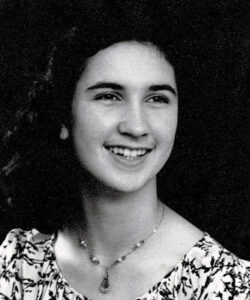 Mary’s family kindly shared this tribute to her, as a supporter of World Cancer Research Fund.
Mary’s family kindly shared this tribute to her, as a supporter of World Cancer Research Fund.
Born in Epsom on 24 July 1936 to Freda and Norman Prideaux, Mary grew up in a loving household with her younger sisters, Jane and Jill. After the war, they all settled into what was to become a bustling, lively, family home in Hampshire filled with grandparents, friends, dogs, cats, geese, heifers, chickens and, most importantly, love and laughter.
Her favourite expression was “Find a way, make a way”. She could make something from nothing, whether an impromptu meal or a beautiful and cosy room in her house. She often saw beauty where others didn’t, and had a gift for showing others the world through her eyes.
Mary started her own very successful art school in Cobham, Surrey, where she would share her skill and knowledge with many aspiring artists. As was so typical of her, she often said she learned as much from her students as they did from her.
 When she finally retired from teaching and moved to a smaller house, Mary continued to paint, having made a small studio in her attic, and she continued to socialise with her many friends. Still being full of energy and wanting to do more, she started going to a Pilates class for the more mature woman. There she met a lovely group of women with whom she spent most of her time laughing.
When she finally retired from teaching and moved to a smaller house, Mary continued to paint, having made a small studio in her attic, and she continued to socialise with her many friends. Still being full of energy and wanting to do more, she started going to a Pilates class for the more mature woman. There she met a lovely group of women with whom she spent most of her time laughing.
In her quiet moments, Mary would enjoy sitting in her conservatory, drinking coffee while watching the birds feast from the bird table. Mary was an active person, filled with energy who kept gardening and painting until the end of her life.
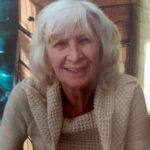 World Cancer Research Fund is humbled to receive gifts in memory of special people, like Mary.
World Cancer Research Fund is humbled to receive gifts in memory of special people, like Mary.
We have a tailored in memory programme where we supply forget me not seeds in the spring, and memorial baubles at Christmas, as well as online ways to share your loved one’s life. Visit Give in memory for more information.
Would you like to share your loved one’s story? We’d love to hear from you. Please telephone our in memory team on 020 7343 4293 or e-mail tributes@wcrf.org.
Siobhan McGeown
Siobhan was inspired to run by her parents (in main picture), who have both had cancer. She says: “After watching both my parents suffer from cancer (ovarian and prostate), as well as several other close family members, I want nothing more than to see better outcomes for cancer diagnoses, as well as better detection and testing before it gets to that stage.”
Angela Brooks (left, wearing cap)
 Angela was diagnosed with breast cancer in 2021 aged only 33. She’s currently in remission but still living with the impact of cancer, including early menopause. Angela told us about her training schedule: “Every 3 weeks, between rounds of chemotherapy, I set myself the goal of completing a 10k run.”
Angela was diagnosed with breast cancer in 2021 aged only 33. She’s currently in remission but still living with the impact of cancer, including early menopause. Angela told us about her training schedule: “Every 3 weeks, between rounds of chemotherapy, I set myself the goal of completing a 10k run.”
Sam Burton
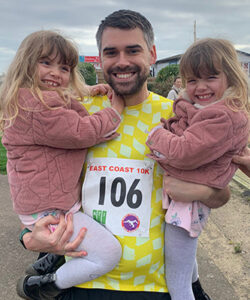 Sam says: “The decision to run for World Cancer Research Fund is driven by my Father’s recent diagnosis with kidney cancer, an event that has reshaped my perspective on life and illuminated the critical importance of cancer research and advocacy.”
Sam says: “The decision to run for World Cancer Research Fund is driven by my Father’s recent diagnosis with kidney cancer, an event that has reshaped my perspective on life and illuminated the critical importance of cancer research and advocacy.”
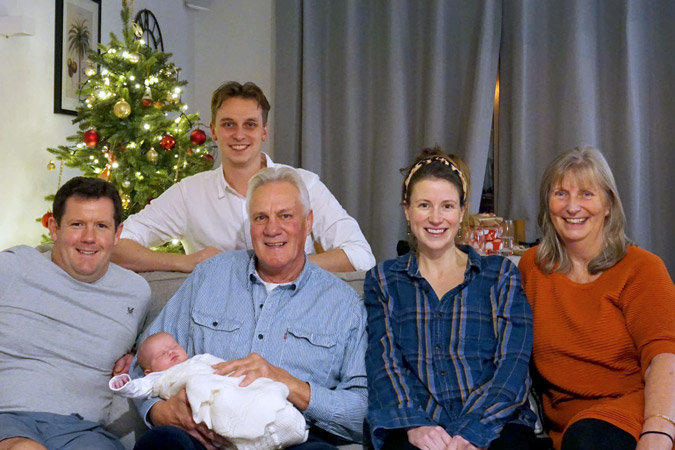
Jack Gibbons and family
Jack Gibbons
 This is Jack’s second marathon for us, having also run in 2018. He’s running in memory of his mum, Maggie, who received a diagnosis of very aggressive stage IV melanoma in late 2023 and passed away in January 2024.
This is Jack’s second marathon for us, having also run in 2018. He’s running in memory of his mum, Maggie, who received a diagnosis of very aggressive stage IV melanoma in late 2023 and passed away in January 2024.
Maggie was there to support Jack when he ran his first marathon and was there at the finish line of the London Landmarks half in 2023 to see him over the line. Her support meant the world to Jack and he’s proud to be able to run for her in 2025 and raise money for World Cancer Research Fund.
David Herlihy
 David sadly lost his Dad to cancer in April 2024, and his Mum has been diagnosed with cancer for the second time in 5 years. He’s dedicated to health and fitness, and has completed 5 marathons, an ironman and 2 ultra marathons.
David sadly lost his Dad to cancer in April 2024, and his Mum has been diagnosed with cancer for the second time in 5 years. He’s dedicated to health and fitness, and has completed 5 marathons, an ironman and 2 ultra marathons.
Hannah Stedman
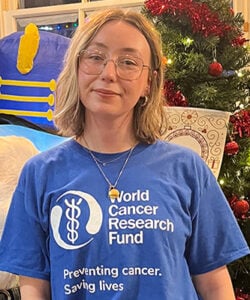 Hannah is running in memory of her amazing Mum, who “had a very quick battle with lung cancer in October 2023. She was diagnosed on the 3rd and had passed by the 24th. To say this experience was the hardest thing of my life is an understatement.”
Hannah is running in memory of her amazing Mum, who “had a very quick battle with lung cancer in October 2023. She was diagnosed on the 3rd and had passed by the 24th. To say this experience was the hardest thing of my life is an understatement.”
George White
 George is a mortgage broker based in the West Midlands and is motivated to run for us after recently losing his Godfather to cancer.
George is a mortgage broker based in the West Midlands and is motivated to run for us after recently losing his Godfather to cancer.
Missing someone special is always difficult, but the “hype” we hear as others plan ahead for Christmas can make 25 December even more difficult for those of us who are missing loved ones who have died and who we would have spent this special day with.
Every bereavement is unique, as is every person, so there’s no magic formula for how best to deal with bereavement. We could feel a mix of emotions – sadness, anger, guilt or even moments of joy when we think back to happier times when we enjoyed the time of year with the person, or people, we now miss.
At World Cancer Research Fund, we have a memorial bauble, which we supply primarily to our supporters but can give to anyone who is remembering someone special this Christmas. We understand many of our supporters are bereaved, and that Christmas can be a difficult time of the year, and one where the loss of someone loved is felt very strongly.
Remember that healing takes time, and the first holiday season is often the hardest. Be patient and gentle with yourself. If you’re really struggling, please don’t hesitate to reach out to a grief counsellor or mental health professional for additional support, or visit one of the helpful websites listed below.
Love that turns to grief
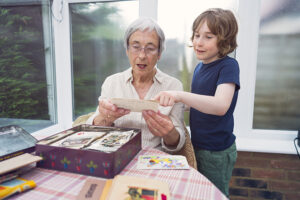
We’ll never forget those who have been a part of our lives who have died, but while grief doesn’t diminish, over time, our world instead gradually grows larger around it. A bit like a river that doesn’t narrow but carves new channels and finds new paths to go forward while still carrying those deeper waters.
It’s nice to have memories of people who brought you joy in previous Christmasses’, even if tinged with sadness that they’re no longer here. It’s OK to be sad at their absence, but it’s also important to try to embrace the spirit of the season they would want for you. You don’t have to feel guilty if you do find moments of joy, and you don’t have to apologise to yourself or others if, in a quiet moment of reflection, you are sad.
When we love someone and they die, that love turns to grief. Sharing memories of them, speaking about them, and perhaps using one of our memorial baubles, allows us to keep their memory alive and remember those we love as we take our own journey through life.
“Be happy that we met, not sad that I am gone” is a sentiment used much in bereavement and captures the essence of what enduring love means. It’s like they’ve left you one final gift of wisdom: to treasure the blessing of having had them in your life at all.
- We encourage people in need of extra support to contact Cruse Bereavement Support on 0808 808 1677 or Mind on 0300 123 3393.
The Cure has designed 2 limited-edition guitars to raise funds for World Cancer Research Fund. The 2 guitars have been built by Schecter Guitars and the artwork is by Bunny Lake Designs.
Frontman Robert Smith will be donating $250 (£191) from each sale, with Schecter Guitars matching his contribution. This will bring donations to $500 (£383) per guitar. There are only 75 available in total and they are available to order here.
Supporting our work is important to the band members, especially after Roger O’Donnell, The Cure’s guitarist, was diagnosed with blood cancer. He has since been urging others to look out for signs and get tested.
Sarah-Jane Hill, Fundraising Partnerships Manager at World Cancer Research Fund, said: “We’re delighted and incredibly grateful that Robert Smith and The Cure have chosen World Cancer Research Fund to benefit from the sale of these iconic guitars. The funds raised from these stunning instruments will support our prevention and survival work, and help people to live longer, healthier lives – free from the devastating effects of cancer.”
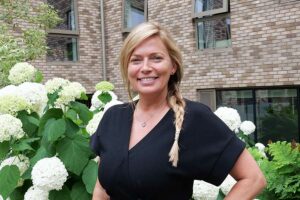
The funds raised from these stunning instruments will support our prevention and survival work
 To celebrate our relationship with The Cure, we designed a spicy sandwich for them during Cancer Prevention Action Week last year – they taste just like heaven! To erase those “blue Mondays ” and “grey Tuesdays”, our pitta surprise is perfect for fans of the legendary English alternative rock band – and best of all it helps reduce your cancer risk, too.
To celebrate our relationship with The Cure, we designed a spicy sandwich for them during Cancer Prevention Action Week last year – they taste just like heaven! To erase those “blue Mondays ” and “grey Tuesdays”, our pitta surprise is perfect for fans of the legendary English alternative rock band – and best of all it helps reduce your cancer risk, too.

Living with cancer
If you, or someone you love, is going through cancer, we’re here to support you. From answers to common questions, to advice on side-effects and free recipes tailored for people living with cancer, browse all our resources.
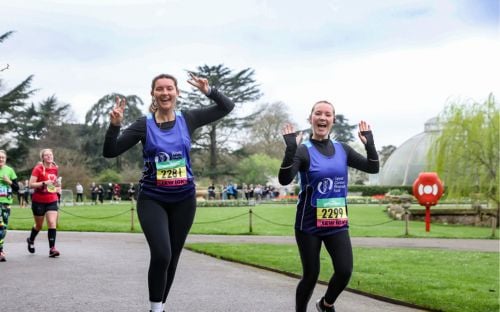
A bowel cancer diagnosis during lockdown shocked our supporter Claire Burlison to the core. But following surgery, she’s now living beyond cancer and trying to follow our Recommendations.
A cancer diagnosis can be devastating for anyone. But when you’re young, energetic – and the world is in the grip of a global pandemic – it’s even harder.
“I was diagnosed with bowel cancer in 2020,” says Claire, “which came as a shock as I’m only in my 40s. Before that, I assumed my irritable bowel syndrome was just getting worse. It was only when I got sharp stomach pains and ended up in A&E that I found out I needed surgery.
“I was expecting bad news, but it still knocked me for six when they phoned and told me I had bowel cancer,” she adds.
Although bowel cancer – like most cancers – is more prevalent in older adults, it’s sadly increasingly common in younger people. Researchers are trying to find out why. Fortunately for Claire, doctors found that the cancer hadn’t spread. Now, having been cancer-free for over 2 years, she’s trying to follow our Recommendations in her daily life to reduce the risk of cancer returning.
Conscious eating
Claire limits alcohol and is much more aware of what she eats – checking food labels to see what’s really in the food she’s buying, and dramatically reducing how much red and processed meat she eats, because of the strong links to bowel cancer.
Exercise is also important for people living beyond cancer – with both physical and mental benefits. For Claire, staying active comes naturally as she is the founder of the international dance phenomenon Clubbercise. Blending simple but effective dance, toning and combat moves, Clubbercise is a workout with a difference aimed at all abilities. The atmosphere is more nightclub than gym, as people dance together in a darkened room with low lighting and flashing LED glow sticks.
Know the symptoms of bowel cancer
Claire says she’s “proud to still be here supporting Bowel Cancer Awareness Month”, which takes place in April every year.
“Thankfully, my cancer was caught early and I’m fine now but many people aren’t so lucky. I’ve lost friends to this terrible disease and I’m keen to raise awareness to help others. If you notice any changes to your bowel habits that last more than a couple of weeks please see your doctor straight away – it could save your life!”
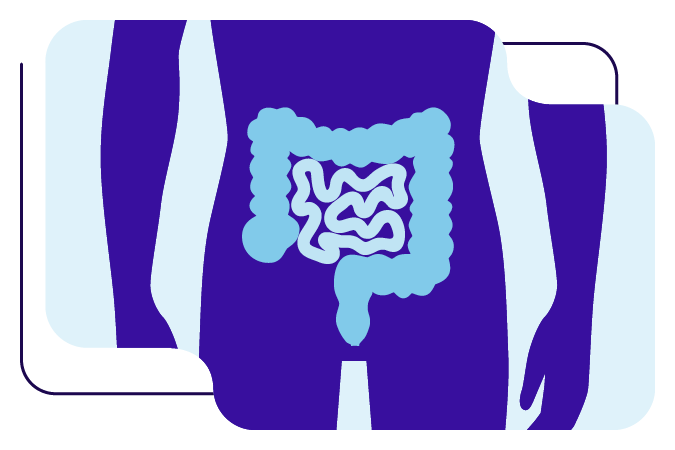
Get the lowdown on bowel cancer
What does our research say about how you can prevent the disease?



